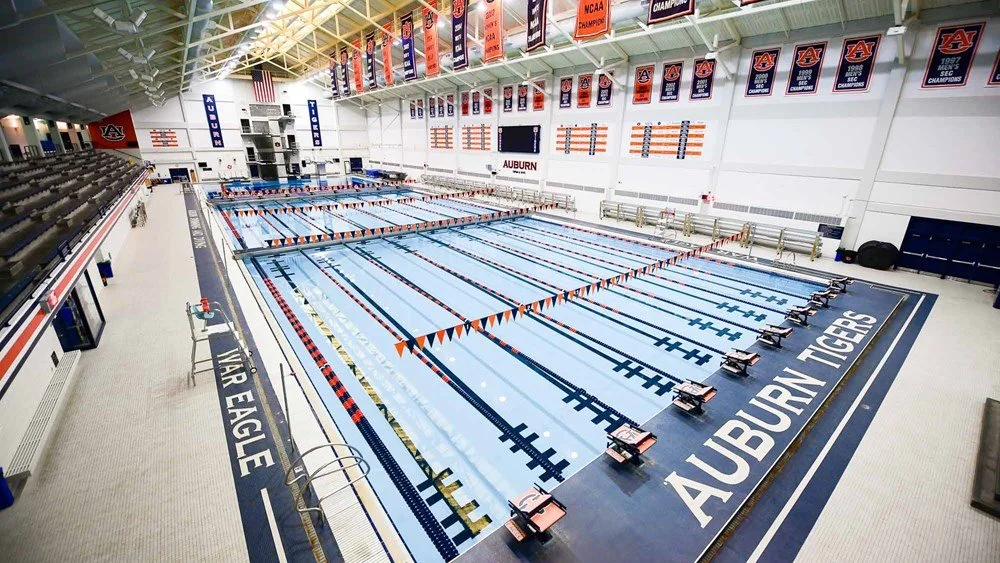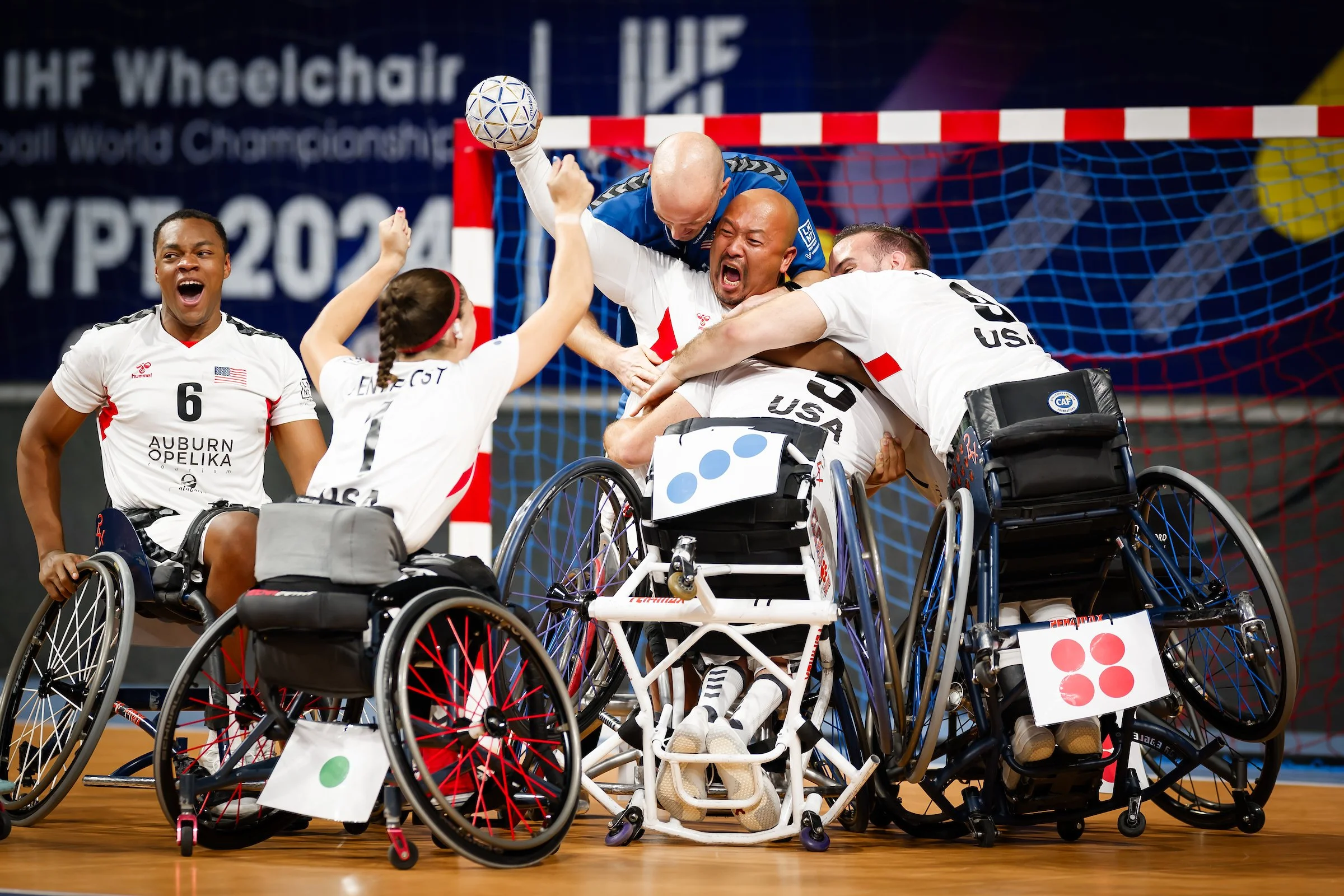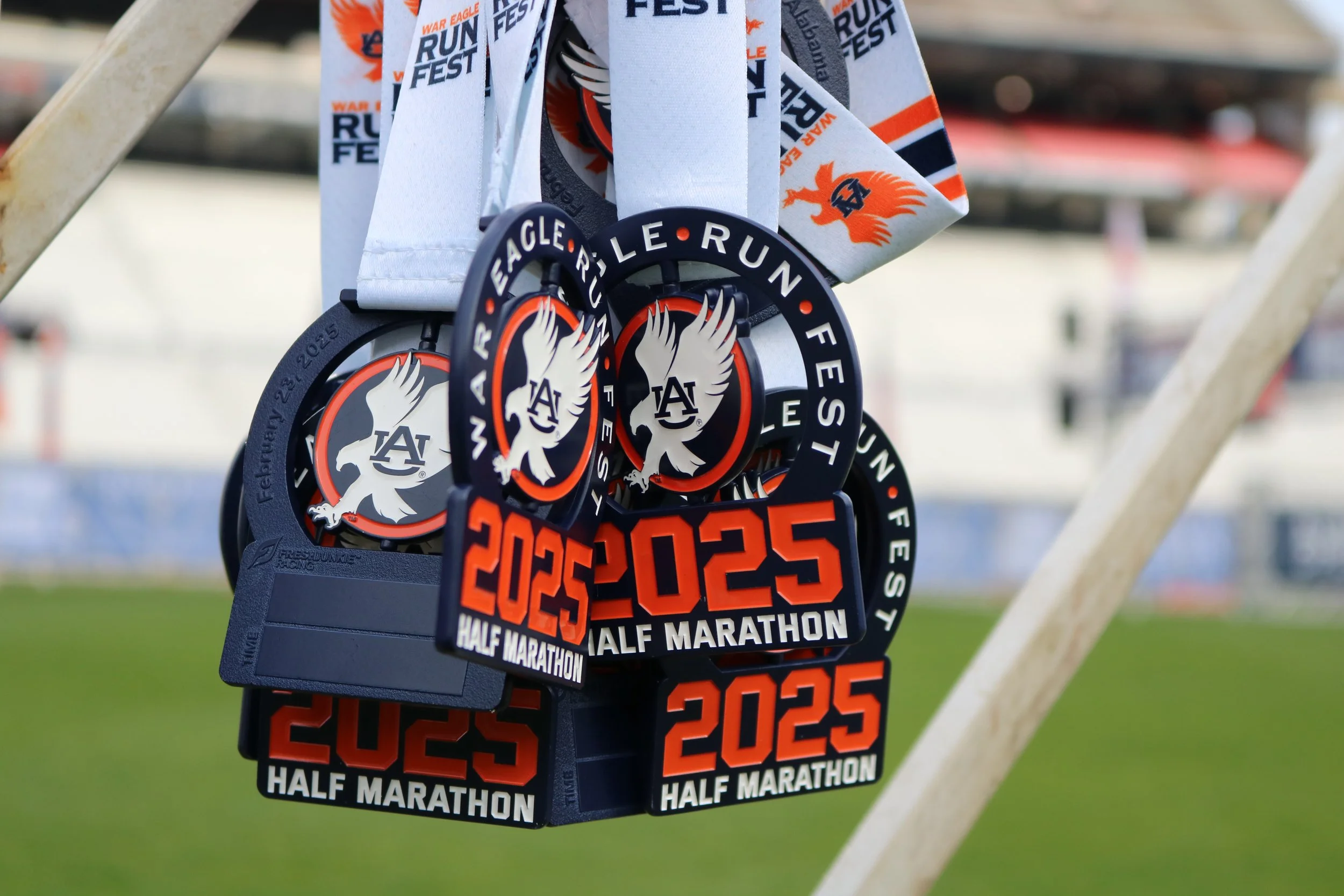Destination Spotlight - Anthony Terling, Auburn-Opelika Tourism
Marathon Mountain Bike National Championship. Start line with Aubie the Tiger
1. How did you first break into the world of sports tourism, and what hooked you for good?
Back in college as a sports management student, a mentor who still guides me today spoke to our class about volunteering for the Alabama State Games. I signed up without much thought, but that decision changed everything. Before I knew it, I had a full-time job lined up while finishing my undergraduate degree and starting graduate school. That experience opened my eyes to the power of creating something that touches so many lives. It impacts participants, their families, the venue staff, and the volunteers, and it can create real economic value for an entire community.
2. What’s a recent project or event you’re especially proud of, and what made it stand out?
We have worked with Auburn Athletics for years to host major NCAA and SEC Championship events. Those collaborations have helped elevate both our community and the university’s profile. In recent years, we have expanded that partnership by looking beyond traditional intercollegiate sports.
The War Eagle Run Fest is a great example. It was one of the first events I played a key role in creating and executing with a company that knows the running industry and shares our long-term vision. The event brought a rights holder from outside the collegiate space into our market. It showcased the strength of collaboration between Auburn Athletics, the City of Auburn, and Auburn-Opelika Tourism.
What made it stand out was the variety of benefits for the community. It inspired local participation, drew visitors from all over the country and beyond, and created an annual tradition that connects collegiate pride with broader sports tourism goals. We are fortunate to have venues that can host everything from championship-level collegiate events to community sports festivals. It reflects our shared vision to build events that strengthen Auburn’s brand while delivering lasting economic and cultural value to the community.
Anthony Terling welcomes anglers at Logan Park’s NSane Fishing Tournament
3. How have you seen the sports tourism industry evolve, and what can we expect next?
Sports tourism has grown beyond major collegiate and professional events to include youth, adult, senior, niche, and adaptive sports that keep destinations busy all year. We are seeing more public-private partnerships, more use of data to prove return on investment, and a greater focus on connecting events to community benefits like improved parks and recreation.
The industry is also moving toward experience-driven destinations that pair sports with food, culture, and the unique parts of a community that make it stand out. Sports tourism is now recognized as a form of economic development. Local, state, and federal governments are seeing its value in attracting industry, creating jobs, and strengthening communities. Auburn-Opelika has a proven history of successfully hosting everything from collegiate championships to large-scale community races, which makes event rights holders confident in bringing their events here again and again.
4. If you could fix one misconception people have about sports tourism, what would it be?
It is just about the game or the athletes. Sports tourism is a powerful economic development tool. It drives lodging demand, boosts restaurant revenue, increases retail sales, generates tax dollars, and fuels community growth. From youth soccer and pickleball to adaptive sports and national championships, every event brings visitors who spend money and strengthen the local economy. It is one of the cleanest forms of economic development.
5. What role does community impact play in your strategy when attracting or developing sporting events?
We all know the term “heads in beds,” and it is an integral part of our work. We do want events that bring measurable visitor spending to local hotels, restaurants, and businesses, and that generate tax revenue which can be reinvested into public amenities, recreation facilities, and infrastructure.
But for Auburn-Opelika Tourism, it is about more than just lodging. Community impact is at the center of our strategy. Sports tourism improves the quality of life by bringing in diverse events that lead to better facilities, parks, and infrastructure that residents enjoy year-round. These events foster pride, create volunteer opportunities, and offer family-friendly entertainment. They also boost our economy and showcase our unique mix of small-town charm and sports energy, making the area even more appealing for residents, visitors, and potential businesses. One thing that sets us apart is how easy it is for visitors to get here and feel at home right away. Our hotels, restaurants, and attractions are all close to the action, and our hospitality is unmatched. People remember the way they are welcomed here just as much as the competition they came to see.
James E. Martin Aquatic Center
6. What’s one sports moment that changed your life or career path?
Every Christmas Day, my late father and I went to the Blue Gray Classic, an All-Star game for college football seniors. He worked in the press box while I roamed the sidelines with my field pass, feeling like I was part of the event staff. I met great college players and legendary NFL stars, but the moment that stuck with me most was meeting Tony Dorsett. Even though he was a Cowboy, I knew he was bigger than just that.
I have never been starstruck by athletes, but what made a lasting impact was seeing the behind-the-scenes work that most people never notice. It gave me an early look at what it takes to pull off a major sporting event.
7. Outside of work, what sport, team, or athlete do you enjoy following the most?
Auburn University athletics, of course. For professional sports, it is the Pittsburgh Steelers and Penguins. My Terling family is from the Steel City.
8. If you weren’t working in sports tourism, what would you be doing instead, and why? Landscaping or non-profit charity work. I came to Auburn University planning to get a degree in horticulture and landscape architecture. My wife loves to point out how much I spend on landscaping for our home. I also enjoy giving back and have worked for or served on the boards of several non-profits. Helping people is something I truly value.
USA Wheelchair Handball Game, USA vs. Brazil
9. You’re hosting your dream event in your dream destination. Where are we going and what’s happening?
It would be right here. My love for sports and Auburn Athletics runs deep in my family. For 38 years, I have missed very few Auburn sporting events, and now I get to take my 8-year-old son to the same stadiums where I grew up cheering.
In my dream scenario, we partner with Auburn Athletics to bring the biggest events in our community’s history, from a College Football Playoff game to major national and international competitions. We would showcase everything that makes an Auburn gameday special, from the eagle flight to rolling Toomer’s Corner. Off the field, we would give visitors the best of Auburn-Opelika — great local food, a walkable downtown, family-friendly attractions, and a community that cheers for you whether they know you or not. Visitors would leave with more than just game memories. They would go with an unforgettable Auburn-Opelika experience that keeps them coming back.
10. Who’s someone in the sports world you’d love to grab coffee with, and what would you ask them?
Bo Jackson or Frank Thomas. I would ask them what mindset or daily habits helped them perform at such a high level for so long, and how they have applied that same mindset to their post-athletic careers.
11. What’s in your event day survival kit?
Coffee. More coffee. A power bank for my phone, earbuds, zip ties, Liquid IVs, protein bars, Skittles, a water bottle, sunscreen, run-of-show documents, pens, and a hat.
War Eagle Run Fest Medals 2025
12. What’s the most unexpected or hilarious thing that has happened at one of your events?
When I worked for the Alabama State Games, I once went nearly 48 hours straight overseeing more than 20 sports across 30 venues over three days. I went from helping with the televised opening ceremony in the summer heat, to working late on our registration database, to showing up the next morning in a coat and tie for a live 7:30 a.m. TV interview.
13. If sports tourism were an Olympic event, I’d take gold in:
Seeing a bridge-building opportunity that does not exist yet. Finding untapped opportunities to build connections and partnerships that align with Auburn-Opelika Tourism’s values and strategy.
14. Go-to hype song for a long event day?
80s and 90s rock like Bush, Fuel, Weezer, or Incubus. Or some Lil Wayne.
15. If PUSH Magazine gave you a free Times Square billboard for a day, what would it say?
Be A Better Human Today.
Change Someone’s Tomorrow.





